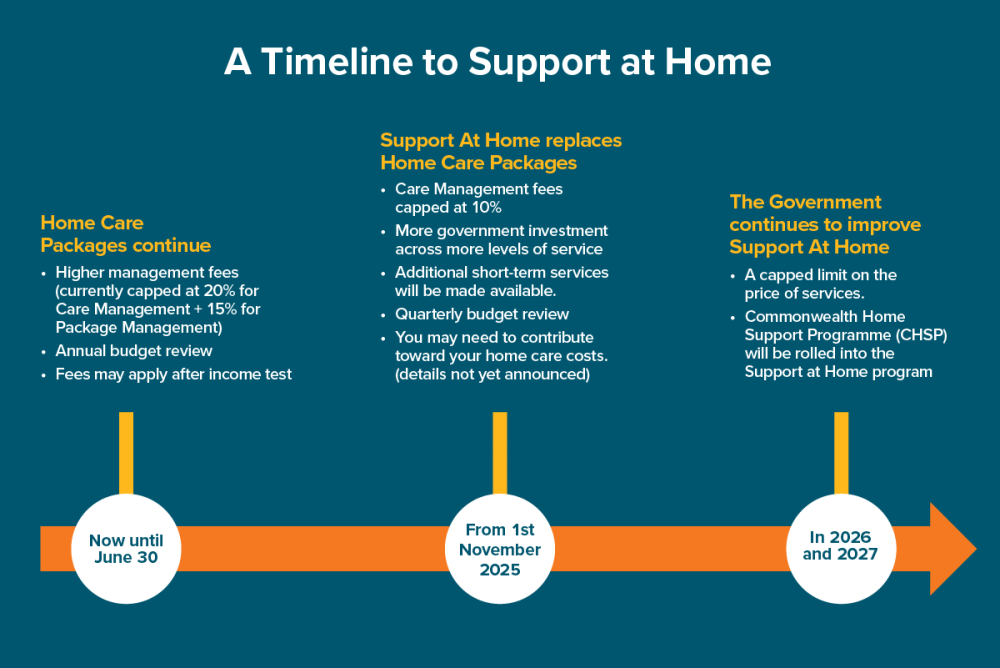Best practices for getting the most from your home care providers experience
Best practices for getting the most from your home care providers experience
Blog Article
Everything About Home Care Solutions for Individuals With Disabilities: NDIS Registered Support
Home treatment services under the NDIS play a crucial duty in sustaining people with impairments. These services are developed to enhance daily living via customized aid, varying from personal treatment to movement support. Recognizing how to navigate these options can be complex. This introduction discovers the various elements of NDIS home care, from available solutions to the option of companies, highlighting necessary factors to consider for those looking for support. The trip towards equipped care starts here.
Recognizing the NDIS and Its Function
The National Disability Insurance Coverage Scheme (NDIS) works as a transformative framework created to offer assistance and solutions for individuals with disabilities. Developed to improve the lifestyle and guarantee equitable accessibility to essential resources, the NDIS encourages participants by providing customized strategies customized to their special needs. It aims to cultivate independence, enabling people to seek their individual goals and aspirations.Through an organized method, the NDIS designates funding for different supports, including education, work help, and area participation. This all-encompassing plan not just concentrates on instant care but also highlights long-term developing outcomes. By promoting selection and control, the NDIS urges participants to select their preferred solution providers, guaranteeing that treatment aligns with their preferences and values. Eventually, the NDIS stands for a significant dedication to enhancing the lives of individuals with specials needs, fostering inclusivity, and constructing an extra helpful culture.
Sorts Of Home Treatment Services Available
Numerous kinds of home care services satisfy people with disabilities, primarily focusing on individual care help and break treatment alternatives. Individual care help offers vital assistance with daily tasks, while respite treatment provides temporary alleviation for primary caregivers. Understanding these solutions is vital for making certain the health of both individuals with handicaps and their families.
Personal Treatment Aid
While maneuvering daily life can offer difficulties for people with impairments, individual care help offers necessary support customized to their distinct demands. This type of home treatment solution encompasses a series of tasks designed to promote freedom and boost high quality of life. Individual care aides assist with everyday tasks such as bathing, dressing, grooming, and toileting, guaranteeing individuals keep individual hygiene and convenience. They may also assist with dish prep work, drug management, and movement support. By supplying individualized treatment, these specialists equip people to involve even more totally in their social activities and daily routines. On the whole, individual treatment aid plays a substantial function in cultivating dignity and autonomy for those with impairments, permitting them to thrive in their home environment.

Break Treatment Options
Respite treatment acts as a necessary resource for families and caretakers of people with specials needs, offering short-term relief from the needs of everyday caregiving. This kind of service can take numerous forms, including in-home reprieve care, where skilled experts check out the home to assist with treatment tasks. Conversely, family members may decide for facility-based break care, where people get treatment in a specific atmosphere, permitting caregivers to pause. Additionally, some companies offer emergency reprieve services for unpredicted situations. These options not only aid alleviate caregiver stress yet likewise promote the wellness of people with specials needs by offering them new experiences and social communication. Generally, reprieve treatment plays a crucial function in sustaining both caretakers and those they take care of.

Just How to Accessibility NDIS Home Treatment Providers
Accessing NDIS home treatment solutions entails comprehending the qualification standards stated by the National Impairment Insurance Coverage Scheme. Individuals need to browse a structured application procedure to protect the needed assistance customized to their needs. This area will certainly make clear both the qualification demands and the steps included in getting solutions.
Qualification Criteria Discussed
To certify for NDIS home care solutions, individuals need to fulfill specific qualification standards that examine their requirements and circumstances. Applicants have to be aged between 7 and 65 years and have a substantial and permanent special needs that affects their capability to perform daily tasks. In addition, they should be an Australian resident, a permanent local, or hold a Protected Unique Category Visa. The NDIS requires evidence of the special needs, generally with clinical assessments or reports. Furthermore, individuals must show that they require support to take part in social and economic life. These criteria guarantee that solutions are routed in the direction of those who genuinely need help, advertising self-reliance and enhanced lifestyle for people with disabilities.
Application Refine Actions
Can I Choose My Own Support Workers Through NDIS?
The private inquired whether they could select their own assistance workers under the NDIS structure. Usually, participants have the adaptability to pick support employees, cultivating customized care that straightens with their certain needs and choices.
What Occurs if My Needs Modification After Getting Assistance?
They need to connect these modifications to their solution company if an individual's demands change after getting assistance. Modifications can be made to the treatment plan, making certain that the support remains effective and pertinent for their scenarios.

Are There Limits on The Number Of Hours of Care I Can Get?
The private asked about potential limits on the variety of care hours received. Typically, such limitations might exist based upon my blog details policies or funding plans, stressing the relevance of evaluating standards and arrangements routinely.
Can I Utilize NDIS Funding for Home Adjustments?
The question of utilizing funding for home adjustments occurs frequently. Generally, individuals might utilize NDIS financing for necessary adjustments to their homes, making certain access and safety and security, contingent upon meeting details qualification requirements and guidelines.
Exactly how Do I Handle Complaints About My Home Care Providers?
To attend to problems regarding home care services, people must initially document their concerns. After that, they can interact directly with their company, seeking resolution, or escalate the concern to appropriate oversight bodies if required. Home care services under the NDIS play a pivotal function in sustaining people with handicaps. Numerous kinds of home care services provide to individuals with impairments, mainly concentrating on individual care assistance and reprieve care choices. home care package providers. Individual treatment assistance gives necessary support with everyday activities, while respite care uses temporary relief for main caretakers. Families might choose for facility-based respite care, where individuals receive treatment in site here a customized environment, enabling caregivers to take a break. Just how can families successfully take care of the monetary aspects of home treatment solutions for people with disabilities?
Report this page